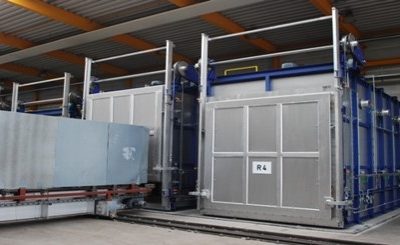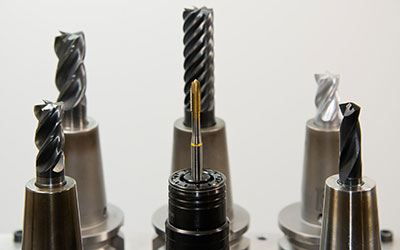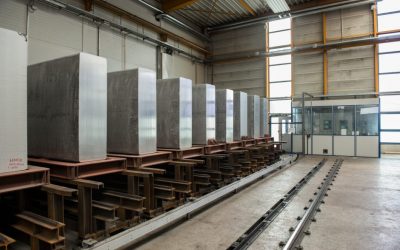Aluminium does not rust – right ?
The use of aluminium has many advantages.
However, an advantage mistakenly attributed to aluminium is that it does not rust.
When using our materials, it is therefore useful to take precautions to prevent or minimize corrosion.
Wat is a corrosion?
Like any metal, aluminium forms a natural oxide layer when it comes into contact with oxygen. In contrast to steel, the corrosive layer comes to a halt after approximately 2.5-4 nm, thus protecting the underlying metal from corrosive destruction. This layer remains stable in the pH range of 4.5 to 8.5, which means that it is not attacked by corrosive gaseous or liquid media. In this state, aluminium has clear advantages over steel.
Contact corrosion
During construction and in various applications with untreated aluminium semi-finished products, care must be taken to avoid contact corrosion. At contact points with more noble metals such as iron and copper, a contact element can form after the ingress of moisture, i.e. a low electrical voltage, under the chemical effect of which the aluminum is attacked.
The most important tips to avoid aluminium corrosion:
- do not bring into contact with materials having an electrochemical voltage potential of > 50 mV
- avoid contact with media outside the pH range of 4.5 to 8.5
- seal crevices ≤0. 5 mm (connected to component)
- do not allow moist parts to come into contact with steel, copper, brass or bronze
- avoid direct contact of parts when stacked vertically
- always use interlayers that are completely dry and free of acid residues
- do not store parts directly on wet or contaminated wood (e.g. pallets)
- never use rags that have been previously used to clean/dry steel, brass, copper, etc. or that are dirty
- never use abrasives (pads paper, etc.) with which other metals have been previously processed
- process only a single material on the machine. If you do change, however, then change the emulsion beforehand.
- even the most elaborate filtration systems cannot separate finest foreign metal particles
- immediately remove machined components and clean and dry them thoroughly
- use only cooling emulsions with a pH range between 4.5 to 8.5
- perform weekly check of pH value of the emulsion
- do not use cleaners with a pH value >8.5
- do not store aluminium in areas with changing climatic conditions
Opportunities for improvement:
Aluminium products can be specifically protected against corrosion by strengthening the oxide layer through anodizing or surface treatments such as painting. During anodizing, the sealing oxide layer is created artificially. It protects the aluminium from reacting with water and seals it airtight.
In addition, the aluminium can be protected from corrosion by changing the alloy. Just a few percent magnesium make it seawater-resistant and therefore suitable for shipbuilding.
With G.AL® C250 Elox Plus, GLEICH Aluminium has a product made from the alloy EN AW-5083, which has been optimized for optical requirements after anodizing (anodizing).
other topics …….
Heat treatment without usage of natural gas
How a German aluminium plate producer is on a worldwide solo attempt and sets new quality standards.
Frustration when producing threads
It doesn’t have to!
By using a process that is aligned to the specific material, durable external and internal threads can be produced in a flash.
Heat treatment of aluminium
GLEICH Aluminium is one of the few manufacturers of aluminium cast plates with an in-house heat treatment facility.
But what actually happens during the heat treatment process and why it is necessary?



